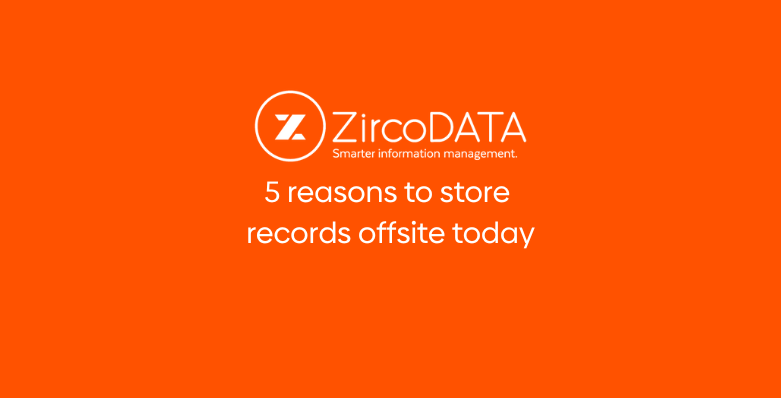
5 reasons to store records offsite today
There are several advantages to storing documents with an off-site records storage provider. You are frequently considerably better off whether you want to save costs, free up expensive office space, enhance the environment, transfer risk, or maintain organisation.
We’ll go through five justifications for off-site record storage in the twenty-first century. You’ll discover that the majority of off-site document storage organisations have kept up with the trends.
Money
Saving money is a constant concern for everyone. Today’s businesses need to control their spending if they want to survive. It costs money to keep tangible records in offices. Records area might be converted into a window, conference room, additional workstation, etc. There are countless options.
Your company probably continues to buy pricey file cabinets or pays a high price per square metre. Office space is substantially more expensive than storing boxes of records and information assets in secure off-site record storage facilities;
Risk
You transfer or share the risk of managing your records with the off-site vendor when you use an off-site record storage facility. The offsite record storage firm has insurance to cover the cost of record loss or a breach if anything unfortunate happens. In order to safeguard the organisation in the event that records are damaged while in the vendor’s custody or in the event of a breach, it is crucial that IG experts collaborate with their legal department to ensure vendor indemnity language is included in the contract.
In most circumstances, keeping your documents offsite with a provider who specialises in records storage offers better protection for your data than keeping them on site at your business. Many businesses lack the necessary security measures, such as access control and chain of custody, to stop unauthorised access to corporate information.
The majority of offsite record storage providers demand that an authorised administrator or administrators from your business be appointed to the account. Typically, the administrator will provide the vendor permission about which workers of the business may request transactions like retrievals, refiles, reports, and supplies.
Organisation
Offsite records storage facilities typically include a system to help you track and manage your physical record inventory. Records that are stored onsite often reside in offices, closets, and file cabinets without a central indexing system.
An organisation may locate what they’re searching for more quickly and track record retention, destruction, and other criteria with the use of a central indexing system. Instead of depending on the memory of employees who may or may not be employed by the organisation for the long term, having data saved offsite with a centralised indexing system helps the organisation maintain track of what they have.
Compliance
In the twenty-first century, the privacy landscape has witnessed significant transformations. It is crucial for all organizations to be mindful of the data they collect and ensure its protection, particularly when it involves personally identifiable information (PII), proprietary intellectual property (IP), and data regulated by the Australian Privacy Act.
Organisations may input and control the destruction of records with a few clicks by utilising a system offered by a trustworthy offsite record storage business. The majority of organisations that offer off-site document storage also offer safe shredding services, often NAID-certified shredding, which is advised to make sure the paper records are destroyed when shredded. There is a certificate of destruction available. When an employee destroys a document, you might not always be informed or be able to verify it, but you will when a respected off-site record storage and shredding firm does. particularly if they have an NAID certification.
Security
Companies that store documents off-site are often significantly more secure than most offices. Background checks are conducted on each employee, and only designated record storage sites are accessible. Visitors must sign in, have their identities checked, and may need to be escorted.
It is always possible to keep an eye on personnel and records thanks to surveillance systems, GPS monitoring, RFID, and cameras. Some organisations lack the extra funding necessary to offer the security required to safeguard documents, and sometimes, just one layer of protection is insufficient.
Reputable and experienced off-site record storage providers are accustomed to implementing extensive security programs.
